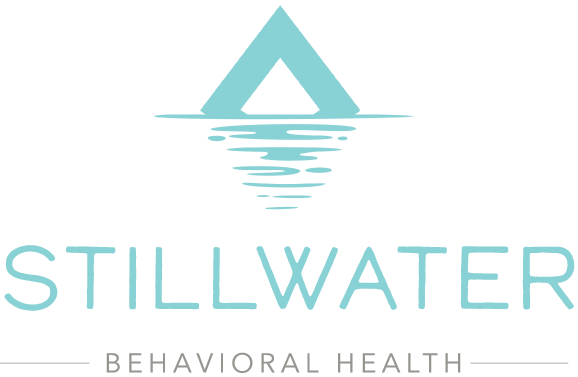Cocaine Withdrawal
Withdrawal occurs when the body begins to crave the substance it is accustomed to receiving. Learn more about the withdrawal process here.
Understanding Withdrawal
When a person suffering from a substance abuse disorder decides to end their use, one of the hardest steps begins. Withdrawal in any abuse disorder treatment is rough, but cocaine withdrawal tends to be especially difficult.
Withdrawal occurs when the body begins to crave the substance it is accustomed to receiving. It comes with an array of symptoms that make the process unpleasant at best, but dangerous at worst. If you or a loved one is beginning the process of ending their cocaine use, understanding withdrawal is essential.
Questions about addiction?
Call Us Now: 1-866-232-9103
Your call is confidential with no obligation required to speak with us.
What is Cocaine?
Cocaine is one of the most notorious drugs in history. While it has recently taken a seat behind opioids, it is still a substance to be taken seriously. Cocaine is classified as a stimulant, and it is derived from the leaves of the coca plant. Cocaine is considered a Schedule II drug under the Controlled Substances Act, according to the Drug Enforcement Agency, meaning that it has a high potential for abuse.1
Street Names
There are several different street names for cocaine. Some of the most common ones are listed below:
- Blow
- Coke
- Crack
- Flake
- Paradise White
- Sleigh Ride
- Snow White
- White
- White Powder
There are many others, as well, depending on what region of the country or the world you are in. It is a prominent
Who is at Risk for Cocaine Addiction?

Family History
More people are at risk for cocaine addiction than other substances, which is due to several reasons. However, one of the reasons that play a large part is family history. Individuals that come from a family with a history of cocaine addiction are more prone to becoming addicted to the substance if they use it, as well.
Addiction to Other Drugs
In addition to this aspect, other factors may make a person more likely to become addicted to cocaine. People who suffer from substance abuse disorders with other substances are more likely to become addicted to cocaine, should they use it.
Mental Illness
Individuals who have a history of mental illness may find cocaine particularly attractive and addicting, as well. It is a stimulant that provides euphoric feelings, allowing people to “escape” from their lows. However, the use of cocaine is more of a danger than a medication, of course, and it should not be used for self-medicating purposes.
What is the Brain Reward System?
The brain reward system is a complex part of neuroscience. However, it can be explained fairly simply. In the brain, there are neural pathways that make us feel good. These neural pathways are only triggered by specific things, however. When we do those specific things, the brain reward pathway is activated, making us feel good.
This brain reward system is what makes drug addiction so complicated. When a person abuses a substance, the brain reward system begins to rewire itself. What used to make you feel good no longer works. The only thing that seems to work is the substance being abused. Cocaine turns the brain reward system into an anti-reward system, and users can only be rewarded when they use the substance.
This system has a severe impact on cocaine withdrawal. Throughout the withdrawal process, very little can make an individual feel “good.” It makes the cravings for cocaine much more intense and makes withdrawal far more antagonizing.
What Are the Symptoms of Cocaine Withdrawal?
Cocaine withdrawal presents itself in a number of ways. In most cases, there are two sets of symptoms; physical and psychological. The severity of these symptoms depends on how long the individual has been abusing cocaine, as well as other independent factors.
Physical Symptoms
The physical symptoms of cocaine withdrawal are varied. They can include erratic sleep, general feelings of pain or discomfort, and an increased appetite. Depending on how severe the addiction was, there may be comorbid symptoms that affect the cardiovascular and respiratory systems.
Psychological Symptoms
More prevalent in their manifestation are the psychological symptoms. Many people report anxiety and depression, as well as severe mood swings. These mood swings range from irritability and anger to sadness and melancholy. Behaviors may change as well, and carvings for cocaine may be intense. Many suffer from poor concentration and lethargy, as well.
How Long Does Cocaine Withdrawal Last?
Cocaine withdrawal, and the symptoms associated with it, depending on the severity of the addition in question. Generally, withdrawal only lasts a few days, with residual effects being felt for weeks. However, if cocaine use was prolonged, then the length of withdrawal is prolonged as well. There is no clear timeline for cocaine withdrawal.
What is Cocaine Detox?
Cocaine detox is the process of removing the substance entirely from the body. The detox process is what causes withdrawal symptoms. During cocaine detox, it is imperative to avoid relapses. When a relapse occurs, it increases the length of time that detox takes, essentially resetting the process. This means that withdrawal becomes prolonged, and can become more dangerous.
Are There Any Medications for Cocaine Withdrawal?
To assist with the detox and withdrawal process, there are some medications available to individuals. Some common medications available are listed below:3
- SSRI – Antidepressants used to help with depression induced by withdrawal
- Sleep medication – Assists in the restlessness associated with withdrawal
- Modafinil – A safer stimulant that helps with symptoms
- Baclofen – Used to curb cocaine cravings
- Disulfiram – A well-known drug used in alcohol dependency withdrawals
Treatment for Cocaine Addiction
At Stillwater Behavioral Health, we pride ourselves on our ability to assist individuals suffering from cocaine abuse. There are several steps involved with treatment for cocaine addiction. We can assist with all of the following:
- Detox – Cocaine detox can be dangerous if not done correctly. We can assist with all steps of the detox process.
- Therapy – Therapy is crucial for avoiding cocaine relapses. We can provide individual and group therapy for our patients.
- Inpatient/Outpatient Care – Cocaine withdrawal can lead to a number of different health risks. Depending on the person, we can provide the care necessary to make sure you make it to recovery.
If you or a loved one is looking for assistance with a cocaine abuse problem, we are here to help. Contact us today to get on the road to recovery, we’re ready to help in whatever way possible.


